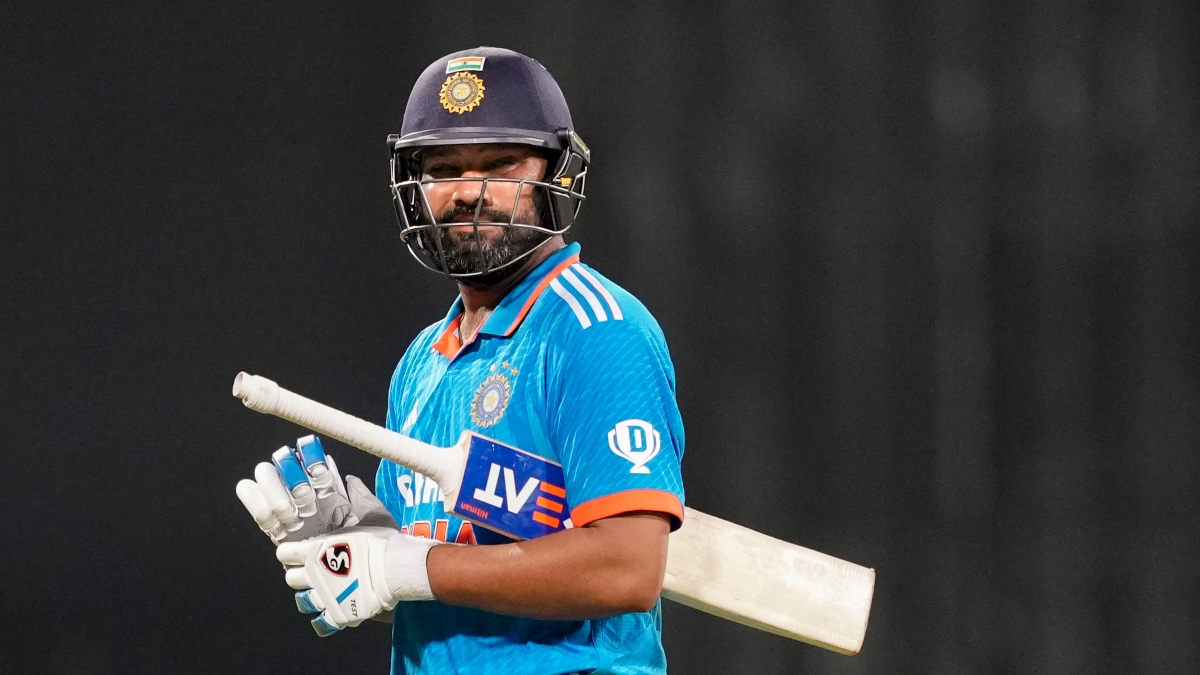) |
|
The recent controversy surrounding Indian cricket captain Rohit Sharma highlights a clash between the demands of international sporting competition and the personal lives of athletes. A leaked audio recording from a press conference revealed an unintentional disclosure by Sharma regarding his intention to discuss the Board of Control for Cricket in India's (BCCI) new family policies with secretary Devajit Saikia. This seemingly innocuous conversation has sparked debate about the balance between the rigorous demands of professional cricket and the needs of players' families. The BCCI's new regulations, implemented following India's disappointing tour of Australia in 2020, strictly limit the duration family members can accompany players on international tours. The restrictions, part of a broader ten-point policy overhaul, are designed to improve focus and prevent distractions, but they have also drawn criticism for potentially impacting player well-being and family relationships.
The specific rules stipulate that families, including partners and children, cannot travel with players for more than two weeks on tours lasting 45 days or longer, with a seven-day limit for shorter trips. This has led to concerns about the potential strain on family dynamics, particularly for players with young children or those with spouses needing support. The mandatory use of team buses, separate from family transportation, further emphasizes the isolation imposed by the stricter policies. This new focus on individual performance over team cohesion raises a wider question about the responsibility of sporting organizations towards the mental and emotional well-being of athletes. While such strict protocols may improve team dynamics in some aspects and curb distractions for individual players, there are arguments that the policies need to consider the crucial aspect of emotional and mental well-being.
The leaked audio, inadvertently revealing Sharma's concerns, underscores the potential tension between the BCCI's objectives and the personal lives of its players. The statement, ‘People are calling me,’ hints at external pressure and criticism surrounding the policy changes. The fact that Sharma felt the need to address the matter directly with the secretary suggests a lack of clear communication or perceived inflexibility within the BCCI's decision-making process. This incident throws into sharp relief the complex interplay between institutional regulations and individual circumstances within high-stakes professional sports. It raises concerns about the potential for burnout and the long-term impact of such restrictive policies on the mental health of athletes and their families. The focus solely on performance can overlook the importance of supportive relationships and holistic well-being.
The public reaction to this incident demonstrates a significant level of interest in player welfare. Many have expressed concerns about the potential negative effects of the strict rules on family dynamics and player morale. The issue highlights a broader debate in the world of professional sports: how to balance the intense demands of high-level competition with the needs of the individuals involved. There is a growing recognition of the importance of athlete mental health and the crucial role that support networks, including family, play in promoting well-being. The BCCI's policies, however well-intentioned, appear to fall short of this consideration, potentially leading to unintended consequences.
Moving forward, a more nuanced approach to athlete welfare is necessary. This may involve reconsidering certain aspects of the existing family policies, establishing more effective communication channels between players and management, and integrating player and family well-being strategies into the BCCI’s overall planning. Perhaps allowing for greater flexibility, depending on individual circumstances and tour lengths, could alleviate some of the concerns. Ultimately, a balance must be struck between maintaining high performance standards and ensuring the well-being of all involved. The ongoing dialogue surrounding this issue promises important considerations for how sporting organizations manage athlete well-being and support structures.
This incident serves as a stark reminder that professional athletes are not simply automatons focused solely on competition; they are individuals with families and personal lives, deserving of respect and consideration. The leaked audio, while unintended, provided a glimpse into the concerns and frustrations experienced by those at the highest levels of international cricket. It necessitates a review of the BCCI's family policies, potentially leading to reforms that better protect the emotional and mental health of players and their families. This ongoing conversation is crucial to ensuring a sustainable and supportive environment for athletes, allowing them to thrive both personally and professionally.
